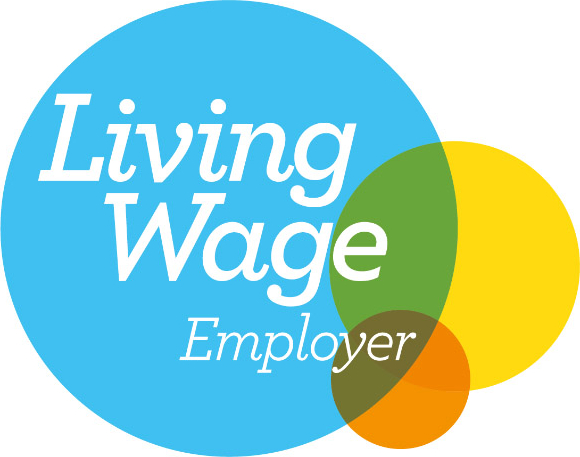Junior medical professionals are threatening to strike again. So what, you might say? When are they not threatening a walk-out? In the past two years, they have actually taken industrial action 11 times.
This makes me actually upset. My medical union, the British Medical Association (BMA), is squandering public respect for physicians, crushing truths and pursuing Left-wing crusades with no regard for the cost to the health service.
Their insatiable demands for higher pay make my profession, my long-lasting occupation, look tawdry, negative and money-grubbing. There are moments when I practically feel I could rip up my subscription card in frustration.
But it isn't simply my union that is behaving so disgracefully. The real perpetrator is the Labour government, whose ineptitude in union negotiations considering that pertaining to power has activated a greedy free-for-all.
Unless these outrageous needs can be brought under control, I fear the NHS might be bankrupted.
The flashpoint this month is the BMA's need for a pay boost better than the 4 per cent that was implemented on April 1 - a rise the union has dismissed as 'derisory'.
That 4 percent is already above the rate of inflation, which is currently running at 3.5 per cent. In fact, the offer offered to junior medical professionals (or 'resident medical professionals', as we're now supposed to call them) offers substantially more, as they will receive an additional ₤ 750 on top of the uplift, representing a typical increase in income of 5.4 per cent.
And it begins top of an enormous 22 per cent average rise served up by Health Secretary Wes Streeting last year in a desperate quote to put a stop to the constant strikes, after they demanded a 30 percent pay increase.
Their insatiable demands for higher pay make my profession, my long-lasting vocation, look tawdry, cynical and money-grubbing, says Dr Max Pemberton
Junior doctor members of the British Medical Association (BMA) on the picket line outside the Royal Victoria Infirmary, Newcastle in 2023
That craven capitulation by Labour didn't work, of course - just as surrender has actually shown unsuccessful in mollifying the transportation unions, the instructors and every other militant cumulative. The BMA justifies its ongoing push for greater pay by declaring medical professionals are worse off by about a quarter in genuine terms because 2009.
The chairman of the BMA council, Professor Philip Banfield, sneers at the 4 per cent boost, saying it 'takes us in reverse, pushing pay restoration even further into the distance,' and includes ominously: 'Nobody desires a go back to scenes of medical professionals on picket lines, but unfortunately this looks even more most likely.'
What else did anybody anticipate? Unions are mandated to demand as much cash for their members as they can get. They do not exist to be reasonable or to accept compromise. And when Labour attempted to buy them off, the unions sensed weakness. Prof Banfield knows there are more concessions to be won now, more pips to be squeezed.
But the NHS is not some private, profit-making corporation, and this is not a battle in between an exploited labor force and fat cat shareholders. Our beleaguered health service is funded by all of us - and it is on its knees.
This is something most physicians can identify. Yet, over the past decade or more, the union has actually been more concerned with pursuing Left-wing agendas than acting in the finest interest of its members.
For example, the BMA's management has actually declined to back the Cass Review, commissioned by the NHS as a report into gender identity services for kids and young individuals.
The findings by Dr Hilary Cass, released last year, encouraged versus hurrying under-18s into gender transition treatment, such as puberty blockers, that they might later be sorry for.

It should not be the BMA's function to release into a dispute on the analysis of medical proof. That's what the Royal Colleges are for.
Sir Keir Starmer and Health Secretary Wes Streeting. This year's pay increase comes after resident doctors were awarded rises worth 22 percent by Mr Streeting in 2015
The union has exceeded its bounds, and I'm seriously dissatisfied about paying my subscription to an organisation that makes political declarations in my name.
These include require a ceasefire in Gaza, for instance, and criticism of China for human rights abuses - as if Hamas is going to return Israeli captives or Beijing is going to stop persecuting the Uighur minority, even if a doctor's union in the UK requires it.
This is inexpensive virtue-signalling, done for no other factor than to make the BMA execs feel great about themselves.
I would appreciate them far more if they put their energy into fact-checking their own claims. The BMA is vulnerable to bandying about numbers that don't withstand examination.
Some of their figures concerning earnings and inflation have been unmasked, utilizing information from the Institute for Fiscal Studies. Since BMA members consist of doctors with expertise in medical statistics, it's an embarrassment to everybody.

Most of all, I dislike them for losing the public assistance for doctors that we earned at fantastic personal cost during the pandemic.
It is sickening that the authentic regard in which the medical profession was held just five years back has actually been changed to a large degree by cynicism and even by disapproval.
Small marvel, then, that lots of junior medical professionals grumble that their friends with tasks in tech or banking are better off than they are.
Junior physicians showing outside Downing Street in 2015 during strike action
Medicine ought to be beyond contrast, not simply one of a raft of careers determined just by the monetary benefits they bring.
This crisis has been brewing a long time, considering that before the 2010 union federal government.
Tony Blair's intro of university charges in 1998 has actually led straight to the situation today, where virtually all my junior associates owe money by as much as ₤ 100,000 - and even more.
As an outcome, an increasing variety of more youthful coworkers appear to see a profession in medication as primarily transactional.
They argue that not just have they worked for their degree, but they've likewise bought and spent for it. Which if they can earn more money by stopping the NHS for the economic sector, and even by emigrating to practice abroad, for example in Australia, well, why shouldn't they?
It's a radically different outlook to that of my generation. As somebody who was lucky sufficient to have his 6 years of medical training funded by the state, I see my function as a psychiatrist as even more than just a job. It's my calling.
DR MAX PEMBERTON: Functioning cocaine addicts hide in plain sight, here's how to spot the signs
I am deeply proud of what I do. Nothing else could replace it or offer me the same degree of fulfillment.
I personally think that a person way to solve the crisis of discontented and requiring young doctors is to deal with trainee medical professionals and nurses as a diplomatic immunity.
Instead of being required to secure debilitating loans, medical trainees need to sign up to have their years of training moneyed by the state.
In return, they would undertake to work exclusively within the NHS for, state, 15 years. Their financial obligation would not be a monetary one however something much deeper - a responsibility to society.
Naturally, they might break this commitment if they wished - but then they would be responsible to pay back part or all the expense of their training.
This would not only make sure more junior doctors stayed in Britain, instead of emigrating, but may likewise have a deep psychological result.
But the BMA do not bother themselves with solutions like this. Instead, they concentrate on political posturing and myopic and impractical pay needs. It also adds to a hazardous generational divide in between older physicians and a brand-new generation with various values.
Unless the union pertains to its senses, it will do immeasurable damage to the NHS - the one organisation we are implied to serve.








